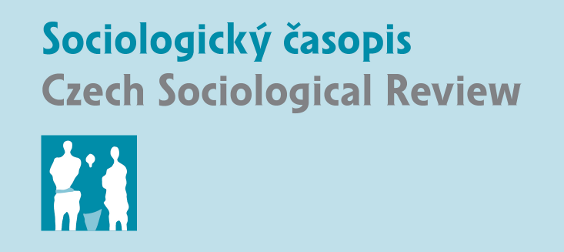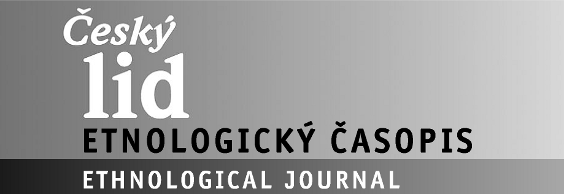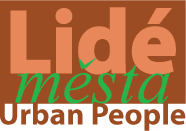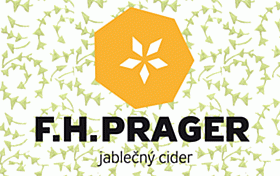MOVIES
Česká republika, 2011, 99 min
Milan Durňak, Magdalena Koháková
28.01.2012 17:10
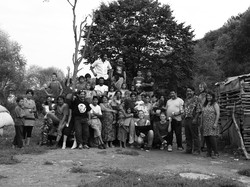 What should antropological films be like? How to come to terms with alternating view of the world and with stereotypes in us? In a 3-year span, this issue kept busy an execution team around Milan Durňak who went back to his home-village to capture life of Roma people together with their Ruthenian neighbours. Every stay in the Roma colony brought one episode of a film which captures everyday life, tries to describe problems which trouble them and constantly strive to jump over their own shadows. The spectator has a chance to encounter a story in a social-cummunity centre with a hard-working mayor and festivals in the village and think about the worries and merriments of one Roma colony.
What should antropological films be like? How to come to terms with alternating view of the world and with stereotypes in us? In a 3-year span, this issue kept busy an execution team around Milan Durňak who went back to his home-village to capture life of Roma people together with their Ruthenian neighbours. Every stay in the Roma colony brought one episode of a film which captures everyday life, tries to describe problems which trouble them and constantly strive to jump over their own shadows. The spectator has a chance to encounter a story in a social-cummunity centre with a hard-working mayor and festivals in the village and think about the worries and merriments of one Roma colony.
Milan Durňak graduated at Charles Univerity in Prague, main field ethnology. Currently he is working at the University as a Phd student. In his studies, he mainly deals with visual anthropology and creation of antropological films.
Director: Milan Durňak
Production: Milan Durňak, Magdalena Koháková
Language of dialogues: Slovakian, Czech, Rusyn language, Gypsy language
Language of subtitles: Slovakian
Norway, 2007, 57 min
Rossella Ragazzi
28.01.2012 20:40
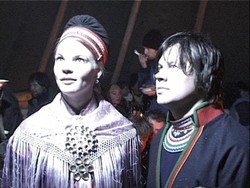 This film narrates the meeting with Sara Marielle Gaup and Lawra Somby, two young performers of joik (Sami chanting technique), born in the north and the south of Sápmi (the cultural nationhood of Sami people in North Norway, Sweden, Finland and Russia). They have come together through a creative musical project called “Adjágas” which in Sami means “the state between sleep and awakening”. In this peculiar state one can unveil reality and tune into the most profound and original joiks. Adjágas, in this way bring the musical-lyrical practice of joik toward the international musical scene by performing with musicians of different horizons, and adapting its performances to the context of reception. The protagonists express different ways of life and concerns, relating also to what it means to be young artists with an indigenous background, having to work a way into the musical industry. It is also a film about what in the waves of the past is worth struggling for understanding, and how joik brings together everyday life, politics and spirituality and becomes a language healing the pain from the colonial history of the past.
This film narrates the meeting with Sara Marielle Gaup and Lawra Somby, two young performers of joik (Sami chanting technique), born in the north and the south of Sápmi (the cultural nationhood of Sami people in North Norway, Sweden, Finland and Russia). They have come together through a creative musical project called “Adjágas” which in Sami means “the state between sleep and awakening”. In this peculiar state one can unveil reality and tune into the most profound and original joiks. Adjágas, in this way bring the musical-lyrical practice of joik toward the international musical scene by performing with musicians of different horizons, and adapting its performances to the context of reception. The protagonists express different ways of life and concerns, relating also to what it means to be young artists with an indigenous background, having to work a way into the musical industry. It is also a film about what in the waves of the past is worth struggling for understanding, and how joik brings together everyday life, politics and spirituality and becomes a language healing the pain from the colonial history of the past.
Rossella Ragazzi, born in Rome, Italy 1965. Filmmaker, ethnographer and associate professor in visual anthropology and museology at the University of Tromsø, Norway. Graduated from National Italian Film School in Rome, and University of Paris and got PhD in Visual Anthropology in Ireland. She co-founded with Britt Kramvig and Ingeborg Solvang film company Sonar Film in 2003.
Director: Rossella Raggazzi
Production: Sonar Film Tromso
Language of dialogues: English, Sami, Norwegian
Language of subtitles: English, Czech
Germany, 2010, 5 min
Alina Trebbin
27.01.2012 22:35
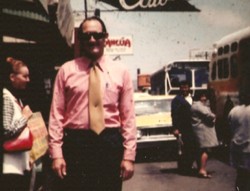 Consuming images is a daily experience. Before learning how to read words, we learn to read pictures. Details are the keys that help us to contextualize, to compose countless notions of the whole from which we now see just the extract contained in a once chosen framing. But are we ever really able to reconstruct past moments depicted in foreign photograph that are someone´s materialized memories? Can we reach a clear undestanding of what should be remembered when already two people looking at a picture see two different picture just as two people with open eyes see two different worlds? Watching a photograph together means to journey on different paths into the past..Still the viewers eyes can meet – in a wine glass on the left bottom corner.
Consuming images is a daily experience. Before learning how to read words, we learn to read pictures. Details are the keys that help us to contextualize, to compose countless notions of the whole from which we now see just the extract contained in a once chosen framing. But are we ever really able to reconstruct past moments depicted in foreign photograph that are someone´s materialized memories? Can we reach a clear undestanding of what should be remembered when already two people looking at a picture see two different picture just as two people with open eyes see two different worlds? Watching a photograph together means to journey on different paths into the past..Still the viewers eyes can meet – in a wine glass on the left bottom corner.
This short film wants to take a look at the limits of photography in reviving bygone moments to the eyes of the stranger who encodes images on the basis of his own memories and undestanding that are more and more interwoven with those of others. We add new layers of meaning to the pictures we consume and create our own truth about situatons we were initially not part of but have become as the present audience. In this way, the strange viewer enriches the unknown photograph just as it enriches him, a process of silent exchange that involves more than just the sense of sight.
Alina Trebbin is a Master´s candidate of Visual and Media Anthropology at Freie Universitat Berlin who researches among other things on the agency of photography. Meet me in memoriam is a short film she contribute to a student film compilation on haptic cinema and transcultueal montage during a Master´s Super8 workshop in 2010.
Director: Alina Trebbin
Production: Florian Walter, Mark Dolling
Language of dialogues: English
Language of subtitles: Germany
Lauching of movie:
Shortcutz Berlin, 2011
EMERGEANDSEE media arts festival Berlin 2011
 What should antropological films be like? How to come to terms with alternating view of the world and with stereotypes in us? In a 3-year span, this issue kept busy an execution team around Milan Durňak who went back to his home-village to capture life of Roma people together with their Ruthenian neighbours. Every stay in the Roma colony brought one episode of a film which captures everyday life, tries to describe problems which trouble them and constantly strive to jump over their own shadows. The spectator has a chance to encounter a story in a social-cummunity centre with a hard-working mayor and festivals in the village and think about the worries and merriments of one Roma colony.
What should antropological films be like? How to come to terms with alternating view of the world and with stereotypes in us? In a 3-year span, this issue kept busy an execution team around Milan Durňak who went back to his home-village to capture life of Roma people together with their Ruthenian neighbours. Every stay in the Roma colony brought one episode of a film which captures everyday life, tries to describe problems which trouble them and constantly strive to jump over their own shadows. The spectator has a chance to encounter a story in a social-cummunity centre with a hard-working mayor and festivals in the village and think about the worries and merriments of one Roma colony.
 This film narrates the meeting with Sara Marielle Gaup and Lawra Somby, two young performers of joik (Sami chanting technique), born in the north and the south of Sápmi (the cultural nationhood of Sami people in North Norway, Sweden, Finland and Russia). They have come together through a creative musical project called “Adjágas” which in Sami means “the state between sleep and awakening”. In this peculiar state one can unveil reality and tune into the most profound and original joiks. Adjágas, in this way bring the musical-lyrical practice of joik toward the international musical scene by performing with musicians of different horizons, and adapting its performances to the context of reception. The protagonists express different ways of life and concerns, relating also to what it means to be young artists with an indigenous background, having to work a way into the musical industry. It is also a film about what in the waves of the past is worth struggling for understanding, and how joik brings together everyday life, politics and spirituality and becomes a language healing the pain from the colonial history of the past.
This film narrates the meeting with Sara Marielle Gaup and Lawra Somby, two young performers of joik (Sami chanting technique), born in the north and the south of Sápmi (the cultural nationhood of Sami people in North Norway, Sweden, Finland and Russia). They have come together through a creative musical project called “Adjágas” which in Sami means “the state between sleep and awakening”. In this peculiar state one can unveil reality and tune into the most profound and original joiks. Adjágas, in this way bring the musical-lyrical practice of joik toward the international musical scene by performing with musicians of different horizons, and adapting its performances to the context of reception. The protagonists express different ways of life and concerns, relating also to what it means to be young artists with an indigenous background, having to work a way into the musical industry. It is also a film about what in the waves of the past is worth struggling for understanding, and how joik brings together everyday life, politics and spirituality and becomes a language healing the pain from the colonial history of the past. Consuming images is a daily experience. Before learning how to read words, we learn to read pictures. Details are the keys that help us to contextualize, to compose countless notions of the whole from which we now see just the extract contained in a once chosen framing. But are we ever really able to reconstruct past moments depicted in foreign photograph that are someone´s materialized memories? Can we reach a clear undestanding of what should be remembered when already two people looking at a picture see two different picture just as two people with open eyes see two different worlds? Watching a photograph together means to journey on different paths into the past..Still the viewers eyes can meet – in a wine glass on the left bottom corner.
Consuming images is a daily experience. Before learning how to read words, we learn to read pictures. Details are the keys that help us to contextualize, to compose countless notions of the whole from which we now see just the extract contained in a once chosen framing. But are we ever really able to reconstruct past moments depicted in foreign photograph that are someone´s materialized memories? Can we reach a clear undestanding of what should be remembered when already two people looking at a picture see two different picture just as two people with open eyes see two different worlds? Watching a photograph together means to journey on different paths into the past..Still the viewers eyes can meet – in a wine glass on the left bottom corner.
